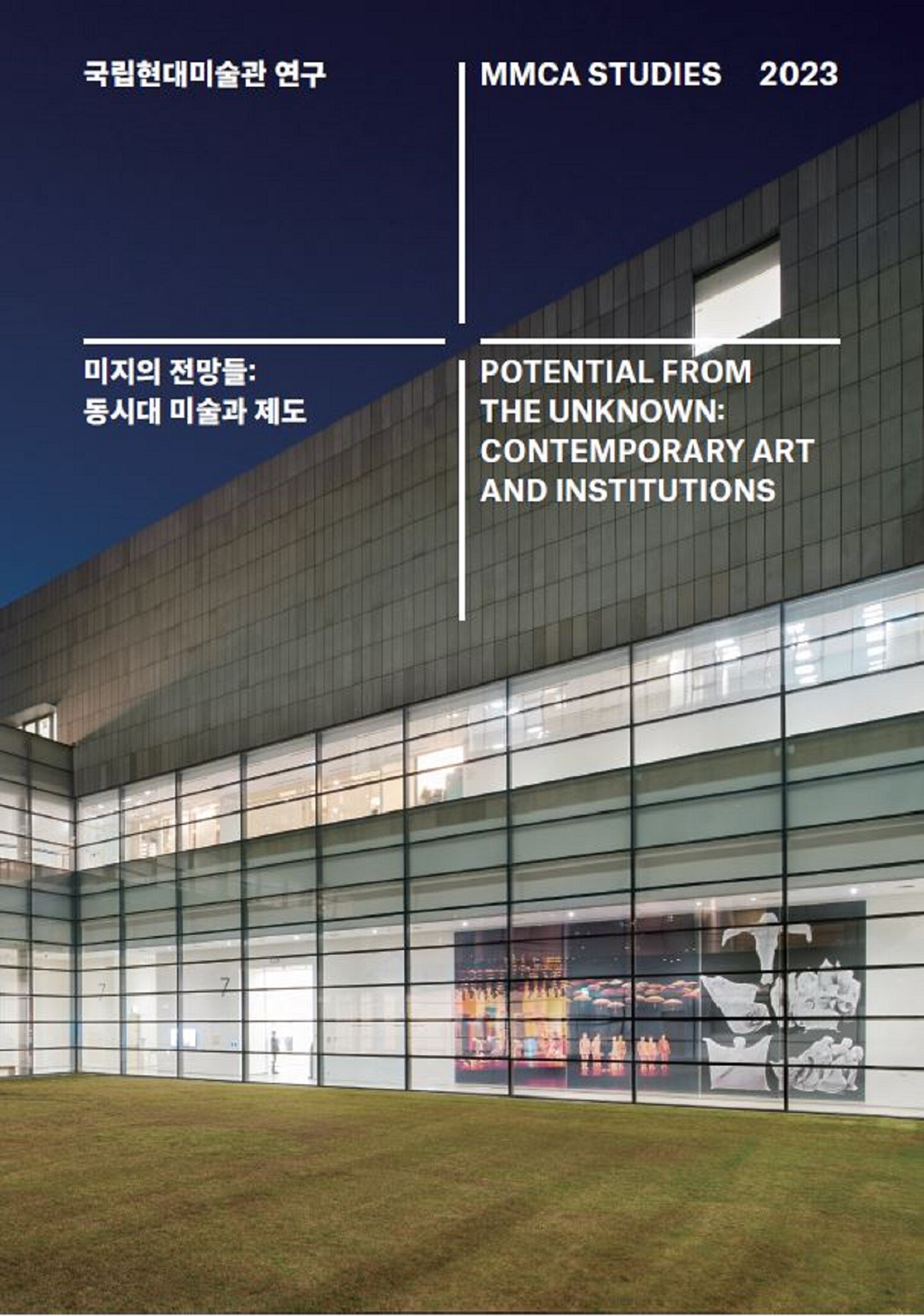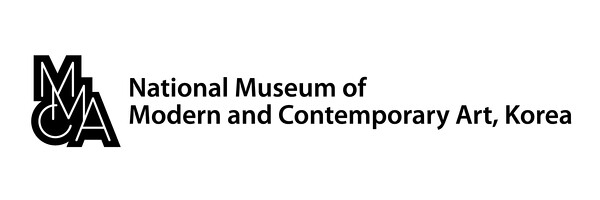30 Samcheong-ro, Jongno-gu
03062 Seoul
South Korea
Hours: Monday–Sunday 10am–6pm,
Wednesday and Saturday 10am–9pm
T +82 2 3701 9500
The international symposium entitled “Potential from the Unknown: Contemporary Art and Institutions” was held on December 1, 2023, commemorating the tenth anniversary of MMCA Seoul. The purpose of the event was to critically reflect on the roles and functions of the museum by analyzing how art institutions are transforming as they interact with contemporary society and culture, and in particular to examine the “potential from the unknown” deriving from the standardization and globalization of institutions. Ultimately, the event proposed art practices that are variable, process-centered, translocal, and ecological for the museums of the future. In conjunction with this international symposium and anniversary, the fifteenth volume of MMCA Studies presents a special issue and shares the results of the symposium and highlights the museum’s key research achievements for 2023.
Contemporary Art and Institutions, a featured Contemporary Art Studies section, includes the full text of the papers presented by the nine academic speakers at the symposium. In the symposium’s first part, under the theme of “After Institutions,” Boris Groys, Seo Dongjin, and Karen Archey analyze the dynamics and factors that drive the changes in today’s art institutions, such as the internet and capitalism. In “Curating and Collecting Art in the Museums of the Post-Internet Age,” media theorist and philosopher Boris Groys argues that the selective and manipulative nature of the internet risks reducing the artist to a content provider, whereas museum exhibitions make their own framing work visible, and indeed ensure authenticity by allowing the viewer to be both inside and outside the apparatus of the exhibition. Curation also serves to reveal the unknown, thus exhibitions that draw on art documentations on the internet can reveal the apparatus behind it. In Seo Dongjin’s essay entitled “The Constellation of Art in the Age of Financialized Capitalism,” the art theorist outlines the conditions that contemporary art faces in a financialized world, where capitalism overtly privatizes the commons to extract fees or rent. Curator Karen Archey presents “Institutional Critique in the Global Critical Field,” and she specifically focuses on Park Chan-kyong’s 2019 solo exhibition at MMCA Seoul to highlight the responsibility of art museums to contribute to reflection upon the systems of modernity after manmade disasters, while emphasizing that the art museum presents a rare opportunity to break free from societal and economic constraints.
In the second part, focusing on the theme “From the Perspectives of Asia,” David Teh, Kim Inhye, and Jung Hyun examine the history of art, written by a minority, from the perspective of Asia. In “Institutional Critique: Some Asian Dispositions,” art critic and curator David Teh reviews the particularities of Asia, while exploring the possibility of critical institution-making outside the Western influence. Art historian Kim Inhye presents “How to Recall Colonial History?,” delving into how Korea’s past colonial experience can be revisited in the context of contemporary discourses. She emphasizes that the critical awareness represented by Korea’s modern art remains salient today, as exemplified by her curation of an exhibition linking modern and contemporary art. Art critic Jung Hyun’s lecture, titled “Korean Art in the 1990s and Contemporaneity,” discusses the interaction between art and cultural phenomena in 1990s South Korea. Suggesting that we can only reflect on the concept of contemporaneity from a distance, he reviews “curricular exhibitions” that sensitively captured the cultural mood of the time.
“Ecological Exposure,” features Alexander Alberro, ikkibawiKrrr, and Lucy Steeds, exploring the ecological outlook of art museums. In his presentation titled “Project Exhibitions and the Twenty-first Century Art Museum,” art historian Alexander Alberro highlights the fact that “project exhibitions” — trans-disciplinary and process-oriented curatorial efforts emphasizing collaborative engagement — can transform the future of museums. Artist collective ikkibawiKrrr (Cho Jieun, Kim Jungwon, and Ko Gyeol) contributes an essay derived from their presentation “On Companions,” which examined the significance of friends in art. The artists talk about their experience of researching female diver culture of Jeju, Korea, while embracing nature and ecology as both the subject and context of their exploration. They delve into how they connected with the sea when encountering the voices and movements of the divers, which evoked a sense of shared memory and experience. In “What Comes After ‘Global’ Exhibition Histories? Art Between the ‘Planetary’ and the ‘Earthly’,” Lucy Steeds shares her insights on art’s “ecological exposability.” She calls for a reflection on our influences on the planet in a world where the global art scene seems to expand infinitely. The recordings of all presentations and discussions can be accessed online, via the museum’s video channel.
The fifteenth edition of MMCA Studies also contains an assessment of the future direction of the museum’s collections and education by experts from inside and outside the museum. In the “Museum Studies” section, Cho Jangun, Head of MMCA Education Department, looks back on the social role that the MMCA’s education programs have played within the framework of the state-driven art and culture system. In her article titled “A Proposal for Rhizomatic Museum Education,” Cho reviews the evolution of the museum’s educational efforts, which have shifted their focus from education to learning and, ultimately, to the platform they now represent. Also featured is an essay titled “ Video Installation and Live Television—the Variable Media Concept in the Work of Paik Nam June” by art historian Dieter Daniels. Daniels identifies “variable media” as the core concept that permeates Paik’s entire oeuvre, and proposes strategies necessary for museums to permanently preserve his works that utilize the old medium of television.
Overall, the current issue of MMCA Studies is aimed at providing a reference point for the institution to autonomously innovate in the future. For that purpose, the publication represents efforts to conduct research that facilitates intellectual exchanges within and beyond the museum and to reflect on the institution’s roles and functions by means of cultural criticism. Welcoming the next ten years of the MMCA Seoul, we anticipate more vibrant dialogues towards ensuring the museum’s sustainability.
Edited by Tiffany Yeon Chae.



